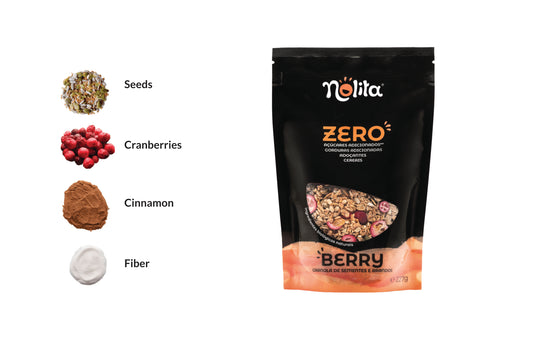Gut health has been given more and more consideration over the past few years and prebiotics and probiotics always seem to be at the center of the discussion. You've probably heard these terms before, but do you know the role each one plays in maintaining a healthy digestive system?
What are prebiotics and probiotics?
Prebiotics are substances that come from types of carbohydrates that humans cannot digest. They are present in fruits, vegetables, and whole grains (fiber-rich foods).
Prebiotics serve as food for probiotics that are bacteria and yeasts found in certain products that feed on pretobiotics. Foods such as yogurt, fermented cheeses like gouda, and other lesser-known foods such as sauerkraut, kimchi, kefir, and kombucha are rich in these bacteria.
What are the benefits?
These food components help create an environment where beneficial microorganisms can develop favorably. Together, they contribute to the maintenance of the intestinal flora and the digestive system.
Some research suggests that prebiotics may be beneficial to the body because they contribute to the absorption of calcium and a decrease in assimilated carbohydrates.
Probiotics, on the other hand, may be beneficial for gestational diabetes, eczema, vaginal infections (caused by yeast), and the immune system, according to some of the recent studies done in the area.
But the most important discovery is related to the impact of the diversity of these bacteria on health: dementias, cardiovascular problems, depression... you name it.... a lot of health problems are now related to the gut health.
What kind of food impacts negatively in gut health?
Some food and medicines have a negative impact in gut health:
high sugar,
high fat and
antibiotics should be avoided.
Some studies sugest that pesticides may also have a negative impact, but more research should be conducted to confirm such findings.
How to find them?
You can take supplements, they are easy to find, but a healthy person with a varied diet may not need to take these supplements.
So, if you don't want to take them, be sure to eat on a daily basis all these kinds of food:
- fruits,
- vegetables,
- whole grains,
- fermented foods (kefir, sauerkraut, tempeh, natto, cheese, kombucha, miso, kimchi).
If you want to experience the benefits of prebiotics, you can always try Nolita Prebiotic Fiber or one of Nolita Prebiotic Pancake Mix. They are good for you and also easy to serve to your kids.
Photo by:@danielcabriles
Bibliography
Villines, Z., (October 29, 2018). What is the difference between prebiotics and probiotics?., from: Medical News Today: Consulted in 21/06/2021
Lewis,S.,( September 9, 2020). Probiotics and Prebiotics: What’s the Difference?.,from Healthline: Consulted in 21/06/2021





